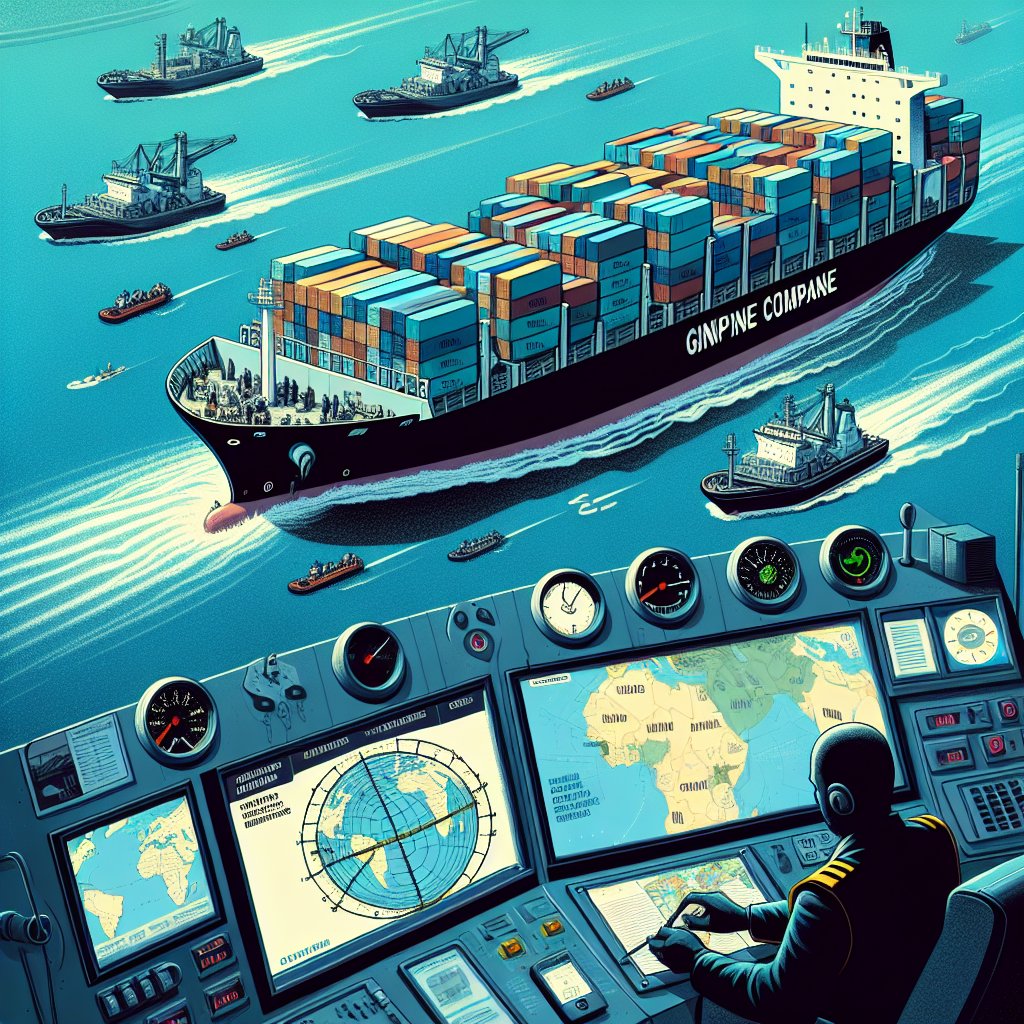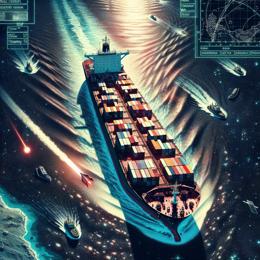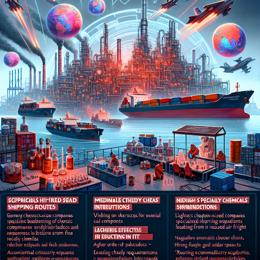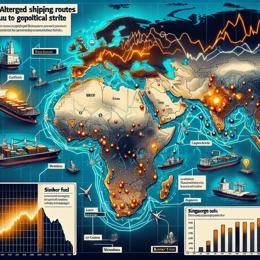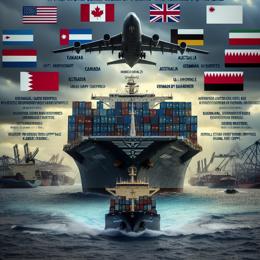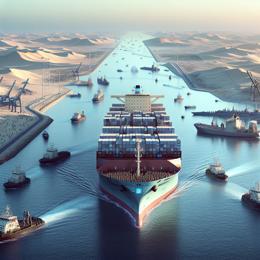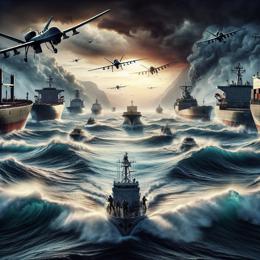Content created by AI
Navigating Uncertainty: Maersk Contemplates Suez Canal Route Amid Regional Instability
The Danish shipping magnate Maersk is facing a critical decision regarding its usage of the Suez Canal for container vessel transit, following an aggressive encounter with Yemen-based Houthi militants which targeted the Maersk Hangzhou. This incident has prompted a 48-hour suspension of their Red Sea routings and a consideration to take alternative, longer maritime paths.
The attack, occurring over the weekend, was promptly countered by US military intervention that saw helicopters navigate into the conflict zone and neutralize the threat posed by the militants, resulting in the demise of 10 attackers. The Maersk Hangzhou subsequently continued its voyage to the Suez Canal, seemingly unhampered by the altercation, as displayed by real-time LSEG shipping data.
Maersk, which boasts over thirty container vessels scheduled to course through the Suez Canal, is on the cusp of concluding whether to follow in the tracks of its competitor Hapag-Lloyd, who has decisively opted to avoid the Red Sea passage at least until January 9th, rerouting their ships around Africa's southernmost point, the Cape of Good Hope.
The maritime industry once again finds itself navigating in choppy waters, exacerbated not only by such geopolitical risks but also the financial ramifications tied to such re-routings. Maersk and other foremost shipping entities had temporarily ceased using the Red Sea routes in the wake of escalated aggressions by the Houthi movement. The unrest has ripple effects across the globe, with soaring oil prices stemming from apprehensions over Middle Eastern supply chain disturbances. It has been indicated that diverting ships to skirt the Cape of Good Hope could inflate operational costs significantly, yet, paradoxically, the shares of these shipping companies have experienced an upturn due to anticipations of elevated freight rates.
Echoing these sentiments, the unlisted French shipping group CMA CGM announced a substantial hike in container shipping rates from Asia to the Mediterranean – an indicator of the pressing economic undercurrents the shipping industry is currently wading through.
While the crisis unravels, Maersk and its alliance partner, Mediterranean Shipping Company (MSC), are cornered into making strategic determinations on their cargo routes. MSC's stance at the moment aligns with rerouting its vessels via the Cape of Good Hope and away from the troubled waters of the Red Sea.
A vital global maritime passage, the Suez Canal serves approximately one-third of the world's container ship cargo. With the threat of armed assaults looming over the Red Sea, shipping behemoths like Maersk are at a crossroads, having to balance profitability, punctuality, and most critically, the safety of their vessels and crew.
As the shipping industry cautiously awaits Maersk's decision, set to unfold on Tuesday, the course charted may well set precedents for how global commerce adapts to geopolitical challenges that lay in international waters.
